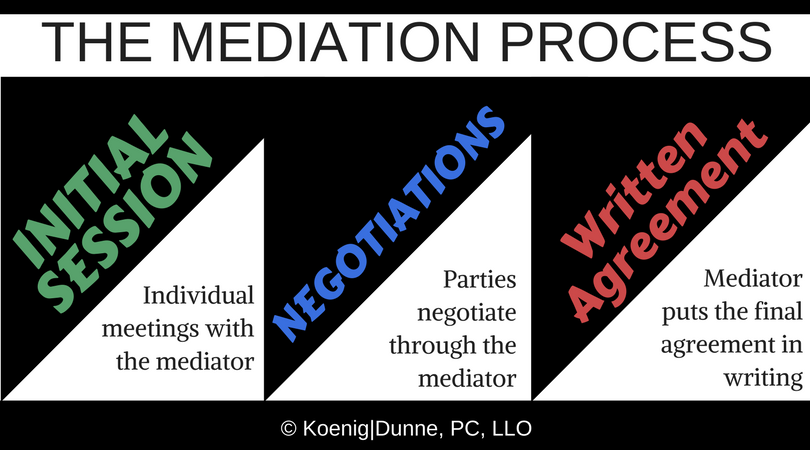When you and your spouse are unable to reach settlement during divorce, one of the first resources available to work past impasse is mediation. In divorces with children, Nebraska law requires mediation, but mediation is often utilized even when children are not at issue.
What is mediation?
Mediation is a way for you and your spouse to talk with the help of a neutral third-party. The role of the neutral third-party, the mediator, is not to take sides, but rather to help you communicate your goals and concerns, while also encouraging you to brainstorm resolutions. While the process of mediation will differ based upon circumstances, the key to all successful mediations is empowering you and your spouse to develop your own lasting solutions.
What does mediation typically look like?
The process of mediation differs by mediator; however, it typically looks like this:
- Initial Contact: The mediator reaches out to both parties to introduce himself or herself. The mediator schedules individual sessions and sets expectations for the remainder of the process.
- Individual Session: The mediator meets individually with each spouse to gain an overview of spousal perspectives, goals, concerns, and proposed solutions. The mediator gauges the level of conflict between spouses and whether domestic violence is a concern. The mediator follows up with a recommendation on whether a joint session or shuttle diplomacy is the next appropriate step.
- Joint Session(s) or Shuttle Diplomacy: If the mediator determines that a joint session is appropriate, the mediator meets face-to-face with you and your spouse. The mediator empowers you to engage in a forward-looking conversation about resolving issues, and the mediator helps you to evaluate whether your proposed solutions are workable. If the mediator determines that a joint session is not appropriate, the mediator schedules additional individual sessions to facilitate indirect communication between you and your spouse. This form of communication is often referred to as “shuttle diplomacy.”
- Follow Up: If you and your spouse reach a full or partial agreement, the mediator drafts a document to capture the agreement and then confirms with you and your attorney that the document accurately reflects your agreement.
Mediation is a powerful resource to help spouses move beyond impasse. Ask your attorney any question you have about your legal rights before mediation begins. Your team at Koenig|Dunne is here to support you through the mediation process.

